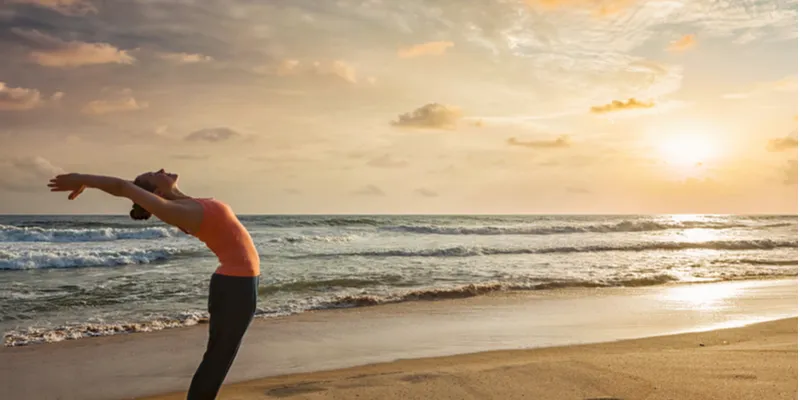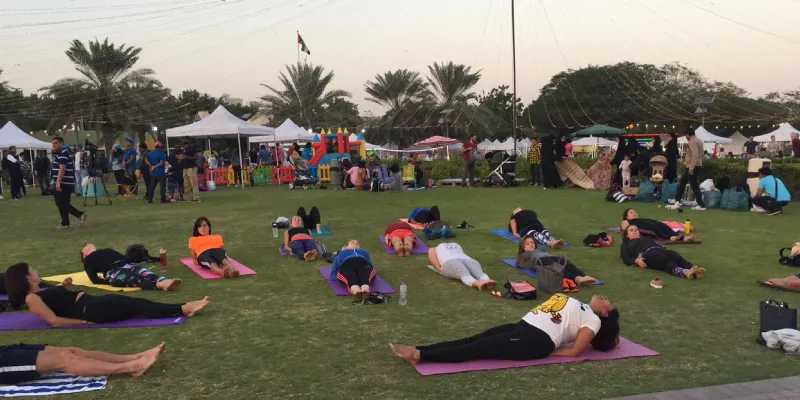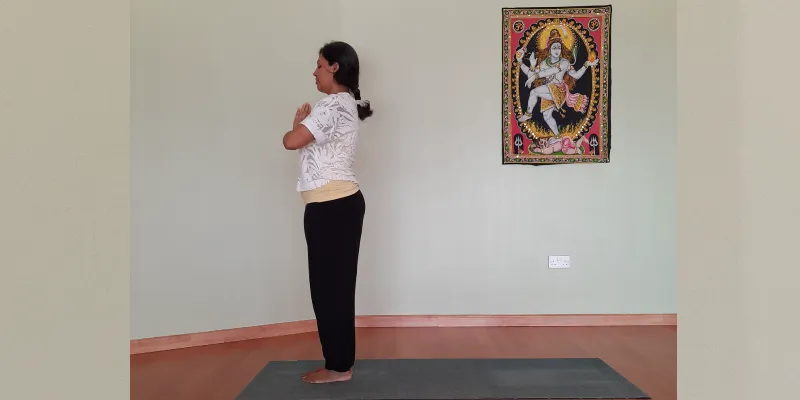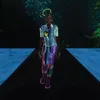International Day of Yoga: Sun salutations can transform your life
On International Day of Yoga, learn all about the Surya Namaskaram which is a yoga sequence of twelve gracefully linked asanas. Our yoga expert explains why you need to master these asanas on this special day
Yoga involves a number of physical, mental, and spiritual practices or disciplines which originated in ancient India. On International Day of Yoga, it is important to remember one of the most effective asanas, called the Sun Salutations.
In 2015 when Tesla founder Elon Musk quipped, “We have this handy fusion reactor in the sky called the sun. You don’t have to do anything. It just works. It shows up every day and produces ridiculous amounts of power.” – the world sat up and took note.
He was not the first person to speak of the immeasurable potential of solar energy and neither will he be the last. Harnessing the power of the sun has picked up new speed in today’s sustainability driven world and every country is working towards this. If that beautiful orange red disc in the sky can have such far reaching effects on our technology, can there be any doubt how profoundly it impacts our body, mind, nervous system?
The inimitable powerhouse
The ancient world knew how important the Sun was and its potential to enhance and transform people’s lives. As a powerful source of energy, it can be both nourishing and detrimental. The Sun was hence worshipped as a benevolent force that yielded its life-giving energy to all beings on the planet to enable us to not just survive but thrive. And the spiritual scientists of the past, having understood its potency, devised a way to safely integrate this solar energy into our systems, helping to fine-tune people to its frequency in the most beneficial and natural way. No mass produced Vit D supplements were needed.
The Surya Namaskaram (Sanskrit) or Sun Salutations as it is popularly known, is well-known in the fitness circles now as a dynamic practice that warms you up, gets the heartbeat racing, joints moving while offering the buzz of a decent cardio workout. And yet to many dedicated yoga practitioners this beautiful practice is sheer meditation in movement, one posture flowing into the other in tandem with the breath.
The Sun Salutations

The Sun salutation brings body, mind and breath together
The Sun Salutation is a rare technique that brings together the body, mind and breath while offering the satisfaction of an intense workout. This is probably what I was unknowingly seeking, as I listlessly treadmilled away few years ago – my feet moving rapidly, yet taking me nowhere and my music causing sufficient distraction to avoid the impending boredom lurking in a corner of my mind.
An ancient practice
When I was finally introduced to Surya Namaskaram, I was first corrected and explained that this series of 12 movements is not merely an “exercise”. It is a practice. Part of an age-old ritual of sun worship, which is most effective when performed everyday at certain times when the energy from the sun is most conducive.

On International Day of Yoga people celebrate the ancient art of yoga
In the yogic sciences, our body is considered to be a receptacle of energy or Prana that circulates and moves about nourishing the entire body mind system. This Pranic energy comes from 4 major sources – Sun, Air, Water and Earth. The body’s natural intelligence knows how to internalise this energy from the external sources for survival purposes. However, if one wants to harness this energy in a more sophisticated manner, there are different techniques to do the same. One of them is the Sun Salutation.
Spinal positions

The prayer pose
It is designed to work directly on our nervous system using the spine as a medium. Our spinal column houses the CNS (central nervous system), the telegraphic system of the body. By maintaining the spine’s flexibility and strength through exercise, circulation is increased and nerves are ensured their supply of nutrients and oxygen.
The practice involves 12 spinal positions done on each side of the body – right & left, each stretching various ligaments and giving different movements to the vertebral column which is bent forward and backward in synchrony with deep breathing. These flowing movements not only help bring back the body’s flexibility but also correct our breathing pattern which has been lost owing to the stressful conditions we currently operate under.
Because one posture smoothly and gracefully flows into the next, it not only helps build muscles but also conforms to the vital rule in Yoga that there should be no undue strain or violence involved in the practice. Hence the extraordinary and unique result – post practice one feels refreshed, not exhausted or spent unlike in many other forms of physical fitness.

The equestrian pose
Of still greater importance is the inner mood with which Surya Namaskaram is performed. Inwardly watching every little movement, one becomes aware of minute changes that takes place in the body. The mind is made quiet and observant in order to do this through the process of synchronistic breathing, and after a few months of practice this awareness continues to grow and deepen.
Benefits of Sun Salutations
- Helps release stiffness – It is an excellent way to open up the flow in all the major joints and strengthen the spine along with dozens of muscles.
- Improves & strengthens spinal health - By enhancing spinal alignment and flexibility it regulates the functioning of the nervous system positively impacting our brain and mental health in the long-run.
Balances left and right brain hemispheres – Since it is done on each side (right & left), it improves symmetry between 2 halves of our body that are connected to opposite brain centres.
- Massages solar plexus and corrects breathing - The smooth alternation between forward-bending and back-bending movements massages the solar plexus (seat of prana/ vital energy), which promotes correct and deep breathing, improving lung capacity.
- Eliminate stress - The synchronised flow of muscle contraction and release eliminates physical and mental stress we tend to hold within.
Slows down aging – This can be considered a long-term side-effect, as naturally with right breathing, better health and improved mental clarity one is able to deal better with stressful situations keeping the physical and mental faculties strong & vibrant.
- Perfect grounding technique - Wonderful grounding technique, teaching us to pay our respects to the major life-giving force with complete humility and surrender. Shows us our interconnection with the forces of nature.
Contraindications
If you are pregnant or over 65 years of age, you may want to consider specialised practices such as pre-natal yoga or yoga for seniors respectively. These prescribe variations that are more in line with the specific conditions of each category.
Times and seasons
- Practise preferably early morning when the rays of the sun are milder or evening around sunset.
- If experiencing your moon cycle, you may want to skip this as it will heat up your body.
- Preferably practise at the beginning of your session, to warm up body and make it more flexible.
Undoubtedly the Sun is absolutely fundamental and vital to our existence. This planet with all its verdant landscapes, water bodies, living organisms is completely solar powered. It is a life-giving force without which insects won’t crawl, flowers won’t bloom, birds will not chirp and our eyes will not twinkle.
Edited by Asha Chowdary
(Disclaimer: The views and opinions expressed in this article are those of the author and do not necessarily reflect the views of YourStory.)









